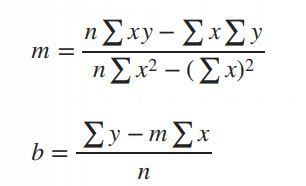#Data science with artificial intelligence
Explore tagged Tumblr posts
Text
Future Optima IT Solutions: The Premier Data Science & AI Training Destination in Kochi, Kerala
Are you in Kerala and seeking a transformative data science career path, especially one with a strong foundation in artificial intelligence (AI)? Look no further than Future Optima IT Solutions in Kochi. Positioned as one of the top Data Science with Artificial Intelligence training centers in Kerala, Future Optima IT Solutions has crafted a comprehensive, industry-aligned program for aspiring data scientists and AI specialists.
Here’s why it stands out as a preferred choice for Data science with artificial intelligence
1. Expert Instructors and Personalized Learning Approach
Future Optima understands that every learner has unique strengths and areas for growth. Their team of expert instructors provides tailored instruction, ensuring each student gets a customized study plan. This personalized approach allows learners to focus on core concepts, enhancing their strengths while addressing improvement areas for a well-rounded understanding of data science. With a blend of one-on-one guidance and group learning sessions, Future Optima ensures every student is well-prepared for real-world challenges.
2. Flexible Learning Options: Online and Offline
Whether you’re a professional looking to upskill on weekends or a recent graduate preferring face-to-face classes, Future Optima offers flexible learning formats to suit your schedule. The online learning option is especially valuable for remote students, providing immersive and interactive sessions that make even complex topics like machine learning and deep learning easy to understand. Meanwhile, the offline classes in Kochi offer hands-on experience with an added benefit of in-person mentorship.
3. Unmatched Placement Assistance
As one of Kerala’s leading Placement Assistance Training Institutes, Future Optima is dedicated to helping its students succeed beyond the classroom. With strong industry connections and partnerships with top IT companies, they offer invaluable job placement support. Their 100% placement assistance program includes career counseling, resume-building workshops, interview preparation, and networking opportunities. This robust support system ensures that graduates transition smoothly into promising careers, setting them on paths for long-term growth in the data science and AI fields.
4. Cutting-Edge, Industry-Relevant Curriculum
The data science and AI program at Future Optima is designed to keep pace with the latest trends, tools, and techniques in the industry. The curriculum spans fundamental to advanced topics in data science, AI, and machine learning. From Python programming to real-world AI applications, the course covers every critical skill and knowledge area, ensuring that students graduate with in-demand expertise. The focus on practical applications also means that students not only learn theories but gain hands-on experience, making them job-ready upon completion.
5. Prime Location and State-of-the-Art Facilities
Located in Kochi’s vibrant IT hub on Civil Line Road, Chembumukku, Future Optima offers students a dynamic learning environment with modern facilities. The campus is equipped with the latest technology and resources that foster growth and innovation. Whether you’re studying in a collaborative lab or attending a guest lecture by industry experts, the environment is designed to inspire and support your journey toward becoming a data science and AI professional.
Why Choose Future Optima IT Solutions?
With its commitment to high-quality education, a practical curriculum, dedicated instructors, and unmatched placement support, Future Optima IT Solutions is a trusted name for anyone looking to excel in data science and artificial intelligence. For those serious about launching a successful career in these fields, Future Optima is an ideal choice that prioritizes student success and growth.
#Best python training institute in kerala#Best python training institute in kochi#Best python fullstack training institute in kerala fee#Python course kochi#Mearnstack training institute in kochi#Meanstach training course in kerala#Flutter training institute in kochi#Placement assurance training institute in kerala#Artificial intelligence training institute in kochi#Data science with artificial intelligence training center in kerala#Python internship training institute in kerala#Data science with artificial intelligence#Software testing institute in kerala#Top training institute in kochi for python fullstack#Python fullstack developer course in Kerala
0 notes
Text
youtube
How To Learn Math for Machine Learning FAST (Even With Zero Math Background)
I dropped out of high school and managed to became an Applied Scientist at Amazon by self-learning math (and other ML skills). In this video I'll show you exactly how I did it, sharing the resources and study techniques that worked for me, along with practical advice on what math you actually need (and don't need) to break into machine learning and data science.
#How To Learn Math for Machine Learning#machine learning#free education#education#youtube#technology#educate yourselves#educate yourself#tips and tricks#software engineering#data science#artificial intelligence#data analytics#data science course#math#mathematics#Youtube
21 notes
·
View notes
Text
The Data Scientist Handbook 2024
HT @dataelixir
#data science#data scientist#data scientists#machine learning#analytics#data analytics#artificial intelligence
18 notes
·
View notes
Text

Simple Linear Regression in Data Science and machine learning
Simple linear regression is one of the most important techniques in data science and machine learning. It is the foundation of many statistical and machine learning models. Even though it is simple, its concepts are widely applicable in predicting outcomes and understanding relationships between variables.
This article will help you learn about:
1. What is simple linear regression and why it matters.
2. The step-by-step intuition behind it.
3. The math of finding slope() and intercept().
4. Simple linear regression coding using Python.
5. A practical real-world implementation.
If you are new to data science or machine learning, don’t worry! We will keep things simple so that you can follow along without any problems.
What is simple linear regression?
Simple linear regression is a method to model the relationship between two variables:
1. Independent variable (X): The input, also called the predictor or feature.
2. Dependent Variable (Y): The output or target value we want to predict.
The main purpose of simple linear regression is to find a straight line (called the regression line) that best fits the data. This line minimizes the error between the actual and predicted values.
The mathematical equation for the line is:
Y = mX + b
: The predicted values.
: The slope of the line (how steep it is).
: The intercept (the value of when).
Why use simple linear regression?
click here to read more https://datacienceatoz.blogspot.com/2025/01/simple-linear-regression-in-data.html
#artificial intelligence#bigdata#books#machine learning#machinelearning#programming#python#science#skills#big data#linear algebra#linear b#slope#interception
6 notes
·
View notes
Text
Usuzumi no Hate, Ch. 10 - “Ethan”
Do you like androids, science fiction, a quiet apocalypse, creepy monsters and/or female heroes with cute pets? How about Wall-e? Then you may wish to give this manga title a chance…
NOTE: read left to right ⬅️


























☕️ Translation: Everyday Heroes
🫖 Uploaded for @soongtypehuman, but free for all to enjoy ~
#It’s like a reverse Data argument#books and reading#books & libraries#manga#androids#black and white#post apocalyptic#mandroid#usuzumi no hate#science fiction (genre)#robots#robo love#artificial intelligence#synthetic life#artificial human#aliens#horror#fungus#ennui#To dream the impossible dream 🎶#caffeine
70 notes
·
View notes
Text
Unlocking the Power of Data: Essential Skills to Become a Data Scientist

In today's data-driven world, the demand for skilled data scientists is skyrocketing. These professionals are the key to transforming raw information into actionable insights, driving innovation and shaping business strategies. But what exactly does it take to become a data scientist? It's a multidisciplinary field, requiring a unique blend of technical prowess and analytical thinking. Let's break down the essential skills you'll need to embark on this exciting career path.
1. Strong Mathematical and Statistical Foundation:
At the heart of data science lies a deep understanding of mathematics and statistics. You'll need to grasp concepts like:
Linear Algebra and Calculus: Essential for understanding machine learning algorithms and optimizing models.
Probability and Statistics: Crucial for data analysis, hypothesis testing, and drawing meaningful conclusions from data.
2. Programming Proficiency (Python and/or R):
Data scientists are fluent in at least one, if not both, of the dominant programming languages in the field:
Python: Known for its readability and extensive libraries like Pandas, NumPy, Scikit-learn, and TensorFlow, making it ideal for data manipulation, analysis, and machine learning.
R: Specifically designed for statistical computing and graphics, R offers a rich ecosystem of packages for statistical modeling and visualization.
3. Data Wrangling and Preprocessing Skills:
Raw data is rarely clean and ready for analysis. A significant portion of a data scientist's time is spent on:
Data Cleaning: Handling missing values, outliers, and inconsistencies.
Data Transformation: Reshaping, merging, and aggregating data.
Feature Engineering: Creating new features from existing data to improve model performance.
4. Expertise in Databases and SQL:
Data often resides in databases. Proficiency in SQL (Structured Query Language) is essential for:
Extracting Data: Querying and retrieving data from various database systems.
Data Manipulation: Filtering, joining, and aggregating data within databases.
5. Machine Learning Mastery:
Machine learning is a core component of data science, enabling you to build models that learn from data and make predictions or classifications. Key areas include:
Supervised Learning: Regression, classification algorithms.
Unsupervised Learning: Clustering, dimensionality reduction.
Model Selection and Evaluation: Choosing the right algorithms and assessing their performance.
6. Data Visualization and Communication Skills:
Being able to effectively communicate your findings is just as important as the analysis itself. You'll need to:
Visualize Data: Create compelling charts and graphs to explore patterns and insights using libraries like Matplotlib, Seaborn (Python), or ggplot2 (R).
Tell Data Stories: Present your findings in a clear and concise manner that resonates with both technical and non-technical audiences.
7. Critical Thinking and Problem-Solving Abilities:
Data scientists are essentially problem solvers. You need to be able to:
Define Business Problems: Translate business challenges into data science questions.
Develop Analytical Frameworks: Structure your approach to solve complex problems.
Interpret Results: Draw meaningful conclusions and translate them into actionable recommendations.
8. Domain Knowledge (Optional but Highly Beneficial):
Having expertise in the specific industry or domain you're working in can give you a significant advantage. It helps you understand the context of the data and formulate more relevant questions.
9. Curiosity and a Growth Mindset:
The field of data science is constantly evolving. A genuine curiosity and a willingness to learn new technologies and techniques are crucial for long-term success.
10. Strong Communication and Collaboration Skills:
Data scientists often work in teams and need to collaborate effectively with engineers, business stakeholders, and other experts.
Kickstart Your Data Science Journey with Xaltius Academy's Data Science and AI Program:
Acquiring these skills can seem like a daunting task, but structured learning programs can provide a clear and effective path. Xaltius Academy's Data Science and AI Program is designed to equip you with the essential knowledge and practical experience to become a successful data scientist.
Key benefits of the program:
Comprehensive Curriculum: Covers all the core skills mentioned above, from foundational mathematics to advanced machine learning techniques.
Hands-on Projects: Provides practical experience working with real-world datasets and building a strong portfolio.
Expert Instructors: Learn from industry professionals with years of experience in data science and AI.
Career Support: Offers guidance and resources to help you launch your data science career.
Becoming a data scientist is a rewarding journey that blends technical expertise with analytical thinking. By focusing on developing these key skills and leveraging resources like Xaltius Academy's program, you can position yourself for a successful and impactful career in this in-demand field. The power of data is waiting to be unlocked – are you ready to take the challenge?
3 notes
·
View notes
Text

Pickl.AI offers a comprehensive approach to data science education through real-world case studies and practical projects. By working on industry-specific challenges, learners gain exposure to how data analysis, machine learning, and artificial intelligence are applied to solve business problems. The hands-on learning approach helps build technical expertise while developing critical thinking and problem-solving abilities. Pickl.AI’s programs are designed to prepare individuals for successful careers in the evolving data-driven job market, providing both theoretical knowledge and valuable project experience.
#Pickl.AI#data science#data science certification#data science case studies#machine learning#AI#artificial intelligence#data analytics#data science projects#career in data science#online education#real-world data science#data analysis#big data#technology
2 notes
·
View notes
Text
Why is Data Science related to Machine Learning?
Data Science and Machine learning — As the name suggests, both of them are inter-related, Ask me how? Well Data Science and Machine Learning are imperatively two main assets of the new-technology related world. In this realm, these two are the same halves of a whole learning. The machine learning acts as an important as well as essential vital ingredient in the data science models. However, both of them are having different responsibilities as well as jobs. Some of the major factors that are underlying that will help you to understand the realm of data science related to machine learning better, so let’s dive into their inter-connection -
1. Machine learning is a pivotal key point in Data Science — As the name suggests, the Data Science helps to extract data and insights from the toolbox. The Machine Learning in Data Science not only helps as a central process to provide algorithms to aid and identify patterns in data, however it can also help in making intelligent decisions or predictions without needing the explicit of any guidance and support.
2. Data Science uses Machine Learning to build up predictive Models — The imperative factor that helps and focuses on data science is making all related models that can easily help and anticipate trends or results. Apart from this, Machine Learning also allows all the data analysts and scientists to create and develop models that help to improve their reachability and performance as they analyze more insights and data. Hence, if you also want to learn more about ML or Data Science, and are looking forward to an end-to-end solution of the learning well has the better solution. To find more, please check out other courses, waiting for you!!
2 notes
·
View notes
Text

2 notes
·
View notes
Text

Tonight I am hunting down venomous and nonvenomous snake pictures that are under the creative commons of specific breeds in order to create one of the most advanced, in depth datasets of different venomous and nonvenomous snakes as well as a test set that will include snakes from both sides of all species. I love snakes a lot and really, all reptiles. It is definitely tedious work, as I have to make sure each picture is cleared before I can use it (ethically), but I am making a lot of progress! I have species such as the King Cobra, Inland Taipan, and Eyelash Pit Viper among just a few! Wikimedia Commons has been a huge help!
I'm super excited.
Hope your nights are going good. I am still not feeling good but jamming + virtual snake hunting is keeping me busy!
#programming#data science#data scientist#data analysis#neural networks#image processing#artificial intelligence#machine learning#snakes#snake#reptiles#reptile#herpetology#animals#biology#science#programming project#dataset#kaggle#coding
43 notes
·
View notes
Text
Unlock Your Full Potential with Python Training at Future Optima IT Solutions in Kochi, Kerala
If you are looking to take your programming skills to the next level, there’s no better place to begin than with Python training at Future Optima IT Solutions in Kochi, Kerala. Known for being one of the Best python training institute in kerala, Future Optima is renowned for its job-oriented training programs, designed to help you unlock your full potential and set you on the path to a successful career in tech.
Why Choose Future Optima IT Solutions for Your Python Training?
1. Expert Instructors with Industry Experience
One of the key reasons Future Optima stands out as the leading Python training institute in Kochi is its team of highly experienced instructors. These professionals are working with top MNCs and bring their real-world knowledge and insights into the classroom. By learning from instructors who have hands-on experience, you gain access to practical tips and best practices that will prepare you for real-world programming challenges.
Furthermore, Future Optima offers personalized study plans to ensure each student gets the attention and resources they need to succeed. Whether you’re a beginner or looking to advance your Python skills, the tailored approach ensures you’re able to meet your specific goals.
2. Convenient Online Classes for Flexible Learning
At Future Optima, flexibility is key. Understanding the diverse needs of students, they offer online classes for Python training. This means you can study from the comfort of your home or anywhere else, without the constraints of travel or location. The cutting-edge technology used for these online courses ensures a seamless and interactive learning experience, so you can enjoy the same quality of instruction as you would in a physical classroom.
3. Placement Assistance to Kickstart Your Career
A significant advantage of enrolling in Future Optima IT Solutions is their placement assistance program. As a leading training institute, Future Optima has established strong ties with top IT companies across Kerala and beyond. They understand the importance of not just learning but also landing a job after completing your training. The placement support helps students find career opportunities that match their skills, making it easier to transition from education to employment in the competitive IT sector.
4. Customized Study Plans for Your Success
Future Optima offers courses that are not one-size-fits-all. The training is designed to focus on areas where you need the most improvement. This ensures that every student gets a comprehensive understanding of Python, with particular attention to their individual strengths and weaknesses. With this personalized approach, you can maximize your chances of success, both during the course and in the competitive job market that follows.
5. Industry-Relevant Skills Beyond Coding
At Future Optima, learning Python is not just about writing code; it’s about developing a well-rounded skill set. The curriculum incorporates the latest trends and technologies, helping you gain industry-relevant skills that will make you a valuable asset to employers. Additionally, soft skills such as communication, teamwork, and problem-solving are also emphasized, ensuring you are prepared for every aspect of a career in tech.
Set Your Career on the Path to Success
With a strong mission to empower students and a vision to set industry standards, Future Optima IT Solutions provides more than just Python training. They offer a complete learning experience that equips you with both the technical and soft skills needed to thrive in the competitive tech industry.
Join Future Optima IT Solutions today and take the first step toward becoming a Python expert!
For more information, feel free to contact Future Optima IT Solutions:
Phone: 8891129111 / 8891129222 / 8891129333
Email: [email protected]
Location: Civil Line Rd, Chembumukku, Ernakulam, Kochi, Kerala 682021
Start your journey with one of the best Python training institute in Kochi and unlock the door to your future in tech!
#Best python training institute in kerala#Best python training institute in kochi#Best python fullstack training institute in kerala fee#Python course kochi#Mearnstack training institute in kochi#Meanstach training course in kerala#Flutter training institute in kochi#Placement assurance training institute in kerala#Artificial intelligence training institute in kochi#Data science with artificial intelligence training center in kerala#Python internship training institute in kerala#Data science with artificial intelligence#Software testing institute in kerala#Top training institute in kochi for python fullstack#Python fullstack developer course in Kerala
0 notes
Text
Truth speaking on the corporate obsession with AI
Hilarious. Something tells me this person's on the hellsite(affectionate)
#ai#corporate bs#late stage capitalism#funny#truth#artificial intelligence#ml#machine learning#data science#data scientist#programming#scientific programming
8 notes
·
View notes
Text
Nvidia is now offering free AI courses.
👉 AI for All: From Basics to GenAI Practice
https://lnkd.in/drnju4C7
👉 Getting Started with AI
https://lnkd.in/dCAckqfF
👉 Generative AI Explained
https://lnkd.in/dDe5hBks
👉 Accelerate data science workflows
https://lnkd.in/dxB4SpK7
👉 Building a Brain in 10 Minutes
https://lnkd.in/d93H5BYr
6 notes
·
View notes
Text
Understanding Outliers in Machine Learning and Data Science

In machine learning and data science, an outlier is like a misfit in a dataset. It's a data point that stands out significantly from the rest of the data. Sometimes, these outliers are errors, while other times, they reveal something truly interesting about the data. Either way, handling outliers is a crucial step in the data preprocessing stage. If left unchecked, they can skew your analysis and even mess up your machine learning models.
In this article, we will dive into:
1. What outliers are and why they matter.
2. How to detect and remove outliers using the Interquartile Range (IQR) method.
3. Using the Z-score method for outlier detection and removal.
4. How the Percentile Method and Winsorization techniques can help handle outliers.
This guide will explain each method in simple terms with Python code examples so that even beginners can follow along.
1. What Are Outliers?
An outlier is a data point that lies far outside the range of most other values in your dataset. For example, in a list of incomes, most people might earn between $30,000 and $70,000, but someone earning $5,000,000 would be an outlier.
Why Are Outliers Important?
Outliers can be problematic or insightful:
Problematic Outliers: Errors in data entry, sensor faults, or sampling issues.
Insightful Outliers: They might indicate fraud, unusual trends, or new patterns.
Types of Outliers
1. Univariate Outliers: These are extreme values in a single variable.
Example: A temperature of 300°F in a dataset about room temperatures.
2. Multivariate Outliers: These involve unusual combinations of values in multiple variables.
Example: A person with an unusually high income but a very low age.
3. Contextual Outliers: These depend on the context.
Example: A high temperature in winter might be an outlier, but not in summer.
2. Outlier Detection and Removal Using the IQR Method
The Interquartile Range (IQR) method is one of the simplest ways to detect outliers. It works by identifying the middle 50% of your data and marking anything that falls far outside this range as an outlier.
Steps:
1. Calculate the 25th percentile (Q1) and 75th percentile (Q3) of your data.
2. Compute the IQR:
{IQR} = Q3 - Q1
Q1 - 1.5 \times \text{IQR}
Q3 + 1.5 \times \text{IQR} ] 4. Anything below the lower bound or above the upper bound is an outlier.
Python Example:
import pandas as pd
# Sample dataset
data = {'Values': [12, 14, 18, 22, 25, 28, 32, 95, 100]}
df = pd.DataFrame(data)
# Calculate Q1, Q3, and IQR
Q1 = df['Values'].quantile(0.25)
Q3 = df['Values'].quantile(0.75)
IQR = Q3 - Q1
# Define the bounds
lower_bound = Q1 - 1.5 * IQR
upper_bound = Q3 + 1.5 * IQR
# Identify and remove outliers
outliers = df[(df['Values'] < lower_bound) | (df['Values'] > upper_bound)]
print("Outliers:\n", outliers)
filtered_data = df[(df['Values'] >= lower_bound) & (df['Values'] <= upper_bound)]
print("Filtered Data:\n", filtered_data)
Key Points:
The IQR method is great for univariate datasets.
It works well when the data isn’t skewed or heavily distributed.
3. Outlier Detection and Removal Using the Z-Score Method
The Z-score method measures how far a data point is from the mean, in terms of standard deviations. If a Z-score is greater than a certain threshold (commonly 3 or -3), it is considered an outlier.
Formula:
Z = \frac{(X - \mu)}{\sigma}
is the data point,
is the mean of the dataset,
is the standard deviation.
Python Example:
import numpy as np
# Sample dataset
data = {'Values': [12, 14, 18, 22, 25, 28, 32, 95, 100]}
df = pd.DataFrame(data)
# Calculate mean and standard deviation
mean = df['Values'].mean()
std_dev = df['Values'].std()
# Compute Z-scores
df['Z-Score'] = (df['Values'] - mean) / std_dev
# Identify and remove outliers
threshold = 3
outliers = df[(df['Z-Score'] > threshold) | (df['Z-Score'] < -threshold)]
print("Outliers:\n", outliers)
filtered_data = df[(df['Z-Score'] <= threshold) & (df['Z-Score'] >= -threshold)]
print("Filtered Data:\n", filtered_data)
Key Points:
The Z-score method assumes the data follows a normal distribution.
It may not work well with skewed datasets.
4. Outlier Detection Using the Percentile Method and Winsorization
Percentile Method:
In the percentile method, we define a lower percentile (e.g., 1st percentile) and an upper percentile (e.g., 99th percentile). Any value outside this range is treated as an outlier.
Winsorization:
Winsorization is a technique where outliers are not removed but replaced with the nearest acceptable value.
Python Example:
from scipy.stats.mstats import winsorize
import numpy as np
Sample data
data = [12, 14, 18, 22, 25, 28, 32, 95, 100]
Calculate percentiles
lower_percentile = np.percentile(data, 1)
upper_percentile = np.percentile(data, 99)
Identify outliers
outliers = [x for x in data if x < lower_percentile or x > upper_percentile]
print("Outliers:", outliers)
# Apply Winsorization
winsorized_data = winsorize(data, limits=[0.01, 0.01])
print("Winsorized Data:", list(winsorized_data))
Key Points:
Percentile and Winsorization methods are useful for skewed data.
Winsorization is preferred when data integrity must be preserved.
Final Thoughts
Outliers can be tricky, but understanding how to detect and handle them is a key skill in machine learning and data science. Whether you use the IQR method, Z-score, or Wins
orization, always tailor your approach to the specific dataset you’re working with.
By mastering these techniques, you’ll be able to clean your data effectively and improve the accuracy of your models.
#science#skills#programming#bigdata#books#machinelearning#artificial intelligence#python#machine learning#data centers#outliers#big data#data analysis#data analytics#data scientist#database#datascience#data
4 notes
·
View notes
Text
What are the skills needed for a data scientist job?
It’s one of those careers that’s been getting a lot of buzz lately, and for good reason. But what exactly do you need to become a data scientist? Let’s break it down.
Technical Skills
First off, let's talk about the technical skills. These are the nuts and bolts of what you'll be doing every day.
Programming Skills: At the top of the list is programming. You’ll need to be proficient in languages like Python and R. These are the go-to tools for data manipulation, analysis, and visualization. If you’re comfortable writing scripts and solving problems with code, you’re on the right track.
Statistical Knowledge: Next up, you’ve got to have a solid grasp of statistics. This isn’t just about knowing the theory; it’s about applying statistical techniques to real-world data. You’ll need to understand concepts like regression, hypothesis testing, and probability.
Machine Learning: Machine learning is another biggie. You should know how to build and deploy machine learning models. This includes everything from simple linear regressions to complex neural networks. Familiarity with libraries like scikit-learn, TensorFlow, and PyTorch will be a huge plus.
Data Wrangling: Data isn’t always clean and tidy when you get it. Often, it’s messy and requires a lot of preprocessing. Skills in data wrangling, which means cleaning and organizing data, are essential. Tools like Pandas in Python can help a lot here.
Data Visualization: Being able to visualize data is key. It’s not enough to just analyze data; you need to present it in a way that makes sense to others. Tools like Matplotlib, Seaborn, and Tableau can help you create clear and compelling visuals.
Analytical Skills
Now, let’s talk about the analytical skills. These are just as important as the technical skills, if not more so.
Problem-Solving: At its core, data science is about solving problems. You need to be curious and have a knack for figuring out why something isn’t working and how to fix it. This means thinking critically and logically.
Domain Knowledge: Understanding the industry you’re working in is crucial. Whether it’s healthcare, finance, marketing, or any other field, knowing the specifics of the industry will help you make better decisions and provide more valuable insights.
Communication Skills: You might be working with complex data, but if you can’t explain your findings to others, it’s all for nothing. Being able to communicate clearly and effectively with both technical and non-technical stakeholders is a must.
Soft Skills
Don’t underestimate the importance of soft skills. These might not be as obvious, but they’re just as critical.
Collaboration: Data scientists often work in teams, so being able to collaborate with others is essential. This means being open to feedback, sharing your ideas, and working well with colleagues from different backgrounds.
Time Management: You’ll likely be juggling multiple projects at once, so good time management skills are crucial. Knowing how to prioritize tasks and manage your time effectively can make a big difference.
Adaptability: The field of data science is always evolving. New tools, techniques, and technologies are constantly emerging. Being adaptable and willing to learn new things is key to staying current and relevant in the field.
Conclusion
So, there you have it. Becoming a data scientist requires a mix of technical prowess, analytical thinking, and soft skills. It’s a challenging but incredibly rewarding career path. If you’re passionate about data and love solving problems, it might just be the perfect fit for you.
Good luck to all of you aspiring data scientists out there!
#artificial intelligence#career#education#coding#jobs#programming#success#python#data science#data scientist#data security
9 notes
·
View notes
Text
Business Analytics vs. Data Science: Understanding the Key Differences

In today's data-driven world, terms like "business analytics" and "data science" are often used interchangeably. However, while they share a common goal of extracting insights from data, they are distinct fields with different focuses and methodologies. Let's break down the key differences to help you understand which path might be right for you.
Business Analytics: Focusing on the Present and Past
Business analytics primarily focuses on analyzing historical data to understand past performance and inform current business decisions. It aims to answer questions like:
What happened?
Why did it happen?
What is happening now?
Key characteristics of business analytics:
Descriptive and Diagnostic: It uses techniques like reporting, dashboards, and data visualization to summarize and explain past trends.
Structured Data: It often works with structured data from databases and spreadsheets.
Business Domain Expertise: A strong understanding of the specific business domain is crucial.
Tools: Business analysts typically use tools like Excel, SQL, Tableau, and Power BI.
Focus: Optimizing current business operations and improving efficiency.
Data Science: Predicting the Future and Building Models
Data science, on the other hand, focuses on building predictive models and developing algorithms to forecast future outcomes. It aims to answer questions like:
What will happen?
How can we make it happen?
Key characteristics of data science:
Predictive and Prescriptive: It uses machine learning, statistical modeling, and AI to predict future trends and prescribe optimal actions.
Unstructured and Structured Data: It can handle both structured and unstructured data from various sources.
Technical Proficiency: Strong programming skills (Python, R) and a deep understanding of machine learning algorithms are essential.
Tools: Data scientists use programming languages, machine learning libraries, and big data technologies.
Focus: Developing innovative solutions, building AI-powered products, and driving long-term strategic initiatives.
Key Differences Summarized:

Which Path is Right for You?
Choose Business Analytics if:
You are interested in analyzing past data to improve current business operations.
You have a strong understanding of a specific business domain.
You prefer working with structured data and using visualization tools.
Choose Data Science if:
You are passionate about building predictive models and developing AI-powered solutions.
You have a strong interest in programming and machine learning.
You enjoy working with both structured and unstructured data.
Xaltius Academy's Data Science & AI Course:
If you're leaning towards data science and want to delve into machine learning and AI, Xaltius Academy's Data Science & AI course is an excellent choice. This program equips you with the necessary skills and knowledge to become a proficient data scientist, covering essential topics like:
Python programming
Machine learning algorithms
Data visualization
And much more!
By understanding the distinct roles of business analytics and data science, you can make an informed decision about your career path and leverage the power of data to drive success.
2 notes
·
View notes